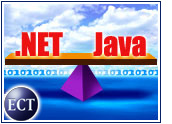
A group of companies in the mobile technologies and devices industry has established a new standards body for mobile processor interfaces.
Called the Mobile Industry Processor Interface (MIPI) Alliance, the new nonprofit entity seeks to define and endorse open-standard specifications for the application processor interfaces (APIs) used in mobile devices, such as cell phones and PDAs.
STMicroelectronics spokesperson Michael Markowitz told the E-Commerce Times that APIs are a relatively new segment of the mobile phone industry. He said these interfaces can accept data input and then manipulate that data to be output as, for example, an MP3 file and a video stream.
STMicroelectronics, a large manufacturer of cell phone components, is one of the four founding member companies of the new alliance. STMicroelectronics partner and semiconductor maker Texas Instruments is also a member, along with mobile phone giant Nokia and ARM, whose processor architecture is the dominant blueprint for mobile devices.
The Objective
Markowitz said the mobile alliance’s objective is to simplify the interface design process so that products may be updated faster in the marketplace. Such an achievement would make designing APIs for cell phones cheaper and easier for developers and manufacturers and ideally would accelerate the market for all companies involved.
According to Markowitz, MIPI will focus primarily on cell phones, though he said nothing will preclude other devices from taking advantage of the standards developed by the alliance.
Ripe for Standards
IDC mobile devices analyst Alex Slawsby told the E-Commerce Times that the mobile arena is one of the ripest areas for instituting standards because there is such a great absence of them.
Unlike the PC industry, in which one can expect certain baseline capabilities in each machine, the mobile device industry comprises such a wide range of appliances and such a tremendous range of technology that interoperability would be seen as extremely desirable, Slawsby said.
He added that the volume opportunity in this industry is huge, and that the ability to streamline processes and ensure compliance will be highly beneficial if MIPI can meet its professed goals.
Active Recruiting
MIPI is actively recruiting new members to assist in the evolution and adoption of new standards. Specifically, the group is seeking handset manufacturers, semiconductor companies, hardware peripheral makers, OS vendors, middleware vendors and software application developers.
The alliance said it expects to announce new members in the third quarter of 2003, noting that multiple levels of membership are available. Basic members can use the specifications that are developed, while higher-level members can participate in developing and defining such specifications.
The Reality
Slawsby said that if the alliance is to adhere to its goals of openness and inclusiveness, chip companies like Intel, Motorola and Samsung will need to be on board, as will Microsoft.
If Microsoft, Intel and their ilk decline to join MIPI, he added, the group likely will become just one of many alliances with limited impact on the industry as a whole. However, he noted, Microsoft’s and Intel’s views on how the mobile devices industry should evolve run counter to the positions espoused by Texas Instruments and STMicroelectronics, making their participation far from a given.
Still, Markowitz said companies will join if they see the benefit in doing so.
“We think we’ve structured our organization in such a way that the goals and benefits are self-evident,” he said.












































Social Media
See all Social Media